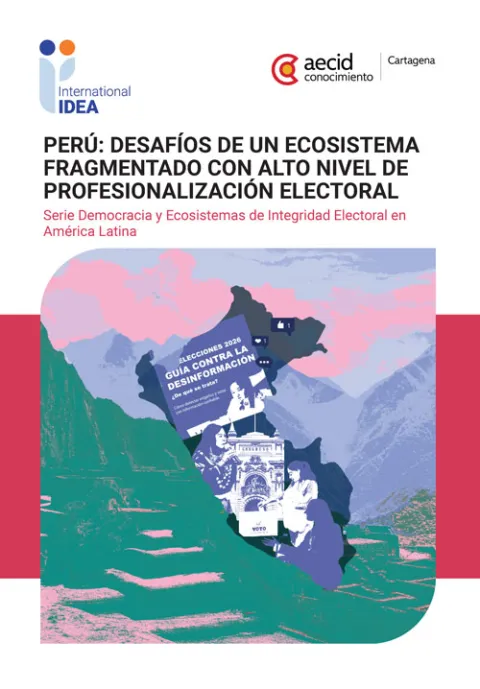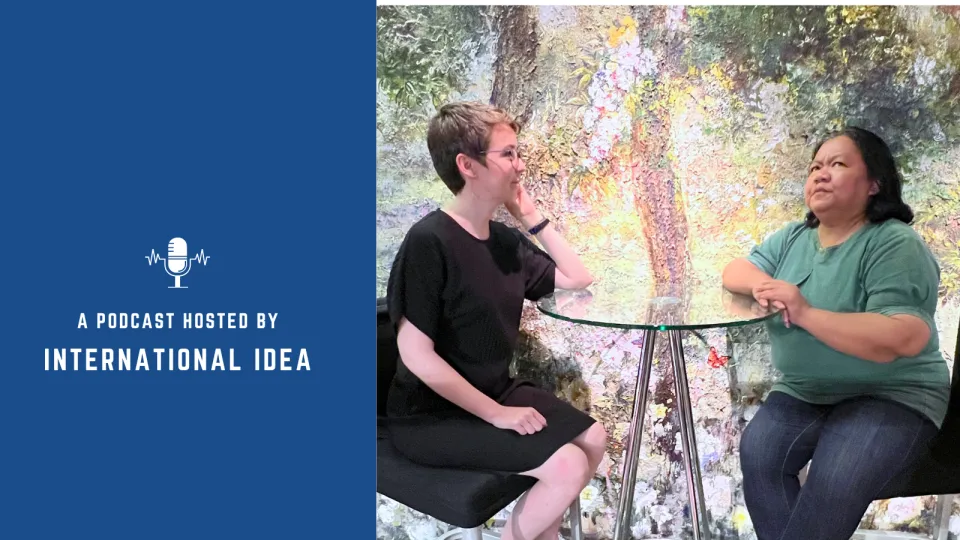La cobertura periodística peruana en 2026 estará marcada por las Elecciones Generales de abril, en un contexto especialmente desafiante: nuevas normas electorales, retorno a la bicameralidad, alta fragmentación política, bajos niveles de confianza ciudadana y un ecosistema digital donde proliferan narrativas engañosas potenciadas por tecnologías emergentes. Frente a este escenario, dos prioridades se vuelven centrales para el periodismo: proteger la integridad del ejercicio profesional y fortalecer las capacidades para enfrentar la desinformación electoral.
Search
Region
Country
Type
On 13 February, International IDEA will host an official side event at the Munich Security Conference on the intersections between democracy and security, with a focus on elections. As democratic backsliding becomes a growing security concern globally, the event positions elections as a core element of democratic resilience.
The National Assembly of Botswana, in partnership with International IDEA through its Inter Pares – Parliaments in Partnership programme, the European Union’s flagship global initiative to strengthen parliamentary capacity, as well as the Climate Change and Democracy programmes, will host an International Parliamentary Roundtable on Human-Wildlife Coexistence (HWC).
El crimen organizado ha dejado de ser un fenómeno aislado en América Latina para convertirse en un factor estructural que afecta la política, la economía y la sociedad. No se limita al narcotráfico, sino que abarca redes flexibles que operan en mercados ilícitos diversos, como el tráfico de personas y armas, la minería ilegal, la corrupción y el cibercrimen. Estas organizaciones han desarrollado un poder económico y coercitivo que compite con el del Estado, socavando su capacidad de acción e incidiendo directamente en la institucionalidad democrática. Hoy, más de 100 millones de personas viven bajo esquemas de gobernanza criminal en la región.
The lecture marks the eighth event in the Stockholm Series of Public Lectures on Climate Change and Democracy.
The International Institute for Democracy and Electoral Assistance (International IDEA), in partnership with its Boundary Partners and with support from the European Union through the CODE Project, is pleased to announce a two-day National Conference on Women’s Political Participation and Representation in The Gambia. The event will be held at the Sir Dawda Kairaba Jawara International Conference Centre from December 15–16, 2025, under the theme: Breaking Barriers, Building Power: Advancing Women’s Political Participation and Representation in The Gambia.
The 11th Session of the Conference of the States Parties (CoSP11) to the UN Convention against Corruption (UNCAC) will take place on 15–19 December 2025 in Doha, Qatar.
Aún no hay un resultado oficial y definitivo de las elecciones generales celebradas en Honduras el pasado 30 de noviembre de 2025. La situación sigue siendo muy ajustada entre los principales candidatos.
High Level Dialogue in Brussels, organized by International IDEA.
La Universidad de Brasilia será sede de la primera edición de la Conferencia Internacional Los Futuros de la Democracia, organizada por el Instituto de Ciencia Política e IDEA Internacional los días 8 y 9 de diciembre de 2025.
The University of Brasília will host the first edition of the International Conference “Futures of Democracy,” organized by the Institute of Political Science and International IDEA, on 8-9 December 2025.
The high-level conference is a collaboration between the European Parliament and the International Institute for Democracy and Electoral Assistance (International IDEA), with the support of the European Commission and the European External Action Service (EEAS).
El evento en colaboración con la Unión Europea, busca generar un espacio de reflexión multisectorial e impulsar acciones concretas frente a los desafíos de la violencia digital y los ciberdelitos, siempre con un enfoque centrado en la igualdad de género, los derechos humanos y la justicia digital.
In January 2025, the United States government launched a far-reaching restructuring of its foreign assistance architecture, closing USAID, consolidating its functions into the State Department, and freezing all foreign aid programming. By March 2025, the review concluded with the termination of 86 percent of USAID awards and 41 percent of State Department awards, amounting to roughly USD 80.5 billion in cancelled funding.
International IDEA is launching the second report in the Perceptions of Democracy Survey (PODS) series, aimed at identifying how people perceive and experience the many aspects of democracy in their country. Like its predecessor, this report is based on a unique poll of popular attitudes derived from a nationally representative sample.
On 26 November, International IDEA, the Republic of Indonesia’s Ministry of Foreign Affairs, and the Embassy of Switzerland to Indonesia will convene a round table discussion on the political rights of overseas citizens.


